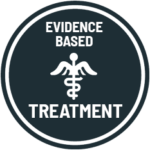What is an Electrocardiogram Test?
An electrocardiogram (ECG or EKG) is a medical test done to record the electrical activity of the heart. It detects and measures the timing and strength of electrical signals passing through the heart, helping doctors assess the heart’s rhythm, rate, and overall function. An ECG is used to diagnose heart conditions like heart attacks, arrhythmias, and other cardiovascular issues.
How Electrocardiogram Testing is Performed
Electrocardiogram testing is performed by placing small, adhesive electrodes on the patient’s chest, arms, and legs. These electrodes are connected to an ECG machine, which records the heart’s electrical signals. There isn’t a risk of electric shock because the electrodes don’t make electricity. During this non-invasive, painless test, the patient lies still while the machine measures and displays the heart’s electrical activity, displayed as a graph. The doctor analyzes the recorded data to assess your heart’s rhythm, rate, and overall function, helping diagnose any potential heart conditions.
How Long Does An Electrocardiogram Test Take?
The ECG test takes around 5 to 10 minutes to complete. The process includes attaching electrodes to the body, recording the heart’s electrical activity, and removing the electrodes. While the recording takes just a few minutes, the entire appointment may take a little longer, depending on preparation.
Understanding Electrocardiogram Test Results
Understanding electrocardiogram (ECG) test results includes an interpretation of the heart’s electrical activity displayed on the ECG graph. The results of the ECG show the heart’s rhythm, rate, and electrical conduction patterns. A normal ECG will display a consistent rhythm and heart rate between 60 to 100 beats per minute, along with specific waveforms reflecting the heart’s electrical impulses.
Abnormal results may indicate several conditions, such as:
Arrhythmias – irregular heartbeats
Bradycardia – a heart rate that is too slow
Tachycardia – a heart rate that is too fast
Heart attack or ischemia – reduced blood flow to the heart
Heart enlargement or structural issues
Doctors use the results to diagnose heart conditions and may recommend more testing or treatments based on their findings.
Electrocardiogram Test Pricing Information
Depending on your location, the type of healthcare facility, and whether you have insurance coverage, electrocardiogram test prices vary. Without insurance, the price for an ECG test ranges from $50 to $200 and up. If the test is performed in a hospital or emergency room, the cost may be higher than at an urgent care. With insurance, the out-of-pocket cost is typically lower, because many plans cover part or all of the ECG test, especially if it is medically necessary. Check with your insurance company for your specific coverage details.
Stress Test Electrocardiogram: Why It’s Done and What to Expect
A stress test electrocardiogram, also known as a treadmill or exercise ECG, is performed to evaluate how your heart functions under physical stress. It is recommended for people with heart disease symptoms, like chest pain or shortness of breath, or for people with a history of heart conditions. It helps doctors assess the heart’s rhythm, blood flow, and electrical activity during exercise, which reveals issues not visible in a resting ECG.
Why It’s Done:
Diagnoses coronary artery disease: Detects blockages or reduced blood flow to the heart.
Evaluates heart rhythm: Identifies irregular heartbeats (arrhythmias) that could occur during exercise.
Assesses exercise tolerance: Determines how your heart responds to physical exertion.
Monitors effectiveness of treatments: Determines how current medications or procedures are managing your heart condition.
What to Expect:
Exercise Phase: You will walk on a treadmill or pedal on a stationary bike. As the test progresses, the intensity gradually increases. Your heart rate, breathing, and blood pressure are monitored during the test.
The test is safe, but if symptoms arise, like chest pain or severe shortness of breath, the test will be stopped immediately. The results of the stress test electrocardiogram help doctors assess your heart’s health and determine if further testing or treatments are necessary.
































